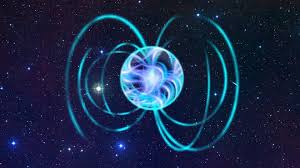
Breaking News
 THE FED WILL INJECT $55.3 BILLION OVER THE NEXT 3 WEEKS, BEGINNING NEXT TUESDAY.
THE FED WILL INJECT $55.3 BILLION OVER THE NEXT 3 WEEKS, BEGINNING NEXT TUESDAY.
 Everyone failed. But Elon's XAI built a 1 GW data center in 122 days.
Everyone failed. But Elon's XAI built a 1 GW data center in 122 days.
 'The dollar is losing credibility': why central banks are scrambling for gold
'The dollar is losing credibility': why central banks are scrambling for gold
 Wow! This chart blew me away. Silver!
Wow! This chart blew me away. Silver!
Top Tech News
 Solar Just Took a Huge Leap Forward!- CallSun 215 Anti Shade Panel
Solar Just Took a Huge Leap Forward!- CallSun 215 Anti Shade Panel
 XAI Grok 4.20 and OpenAI GPT 5.2 Are Solving Significant Previously Unsolved Math Proofs
XAI Grok 4.20 and OpenAI GPT 5.2 Are Solving Significant Previously Unsolved Math Proofs
 Watch: World's fastest drone hits 408 mph to reclaim speed record
Watch: World's fastest drone hits 408 mph to reclaim speed record
 Ukrainian robot soldier holds off Russian forces by itself in six-week battle
Ukrainian robot soldier holds off Russian forces by itself in six-week battle
 NASA announces strongest evidence yet for ancient life on Mars
NASA announces strongest evidence yet for ancient life on Mars
 Caltech has successfully demonstrated wireless energy transfer...
Caltech has successfully demonstrated wireless energy transfer...
 The TZLA Plasma Files: The Secret Health Sovereignty Tech That Uncle Trump And The CIA Tried To Bury
The TZLA Plasma Files: The Secret Health Sovereignty Tech That Uncle Trump And The CIA Tried To Bury
 Nano Nuclear Enters The Asian Market
Nano Nuclear Enters The Asian Market
 Superheat Unveils the H1: A Revolutionary Bitcoin-Mining Water Heater at CES 2026
Superheat Unveils the H1: A Revolutionary Bitcoin-Mining Water Heater at CES 2026
 World's most powerful hypergravity machine is 1,900X stronger than Earth
World's most powerful hypergravity machine is 1,900X stronger than Earth
Three Surprising Facts About the Physics of Magnets

Sutter is also host of Ask a Spaceman and Space Radio, and leads AstroTours around the world. Sutter contributed this article to Space.com's Expert Voices: Op-Ed & Insights.
Magnets and the magnetic force are ubiquitous in our everyday lives, helping to guide us in unfamiliar territory and attach our kids' artwork to the fridge. But other than those common examples, magnetic fields always seem to play second fiddle in the symphony of forces in the universe. Sure, every once in a long while they may get to call the shots — like in the extremely dangerous environments of a magnetar or the extremely useful environments of an NMR scanner — but for the most part they simply exist, getting pushed around by their more powerful cousins.
But despite their relative insignificance, they hold a few secrets.



